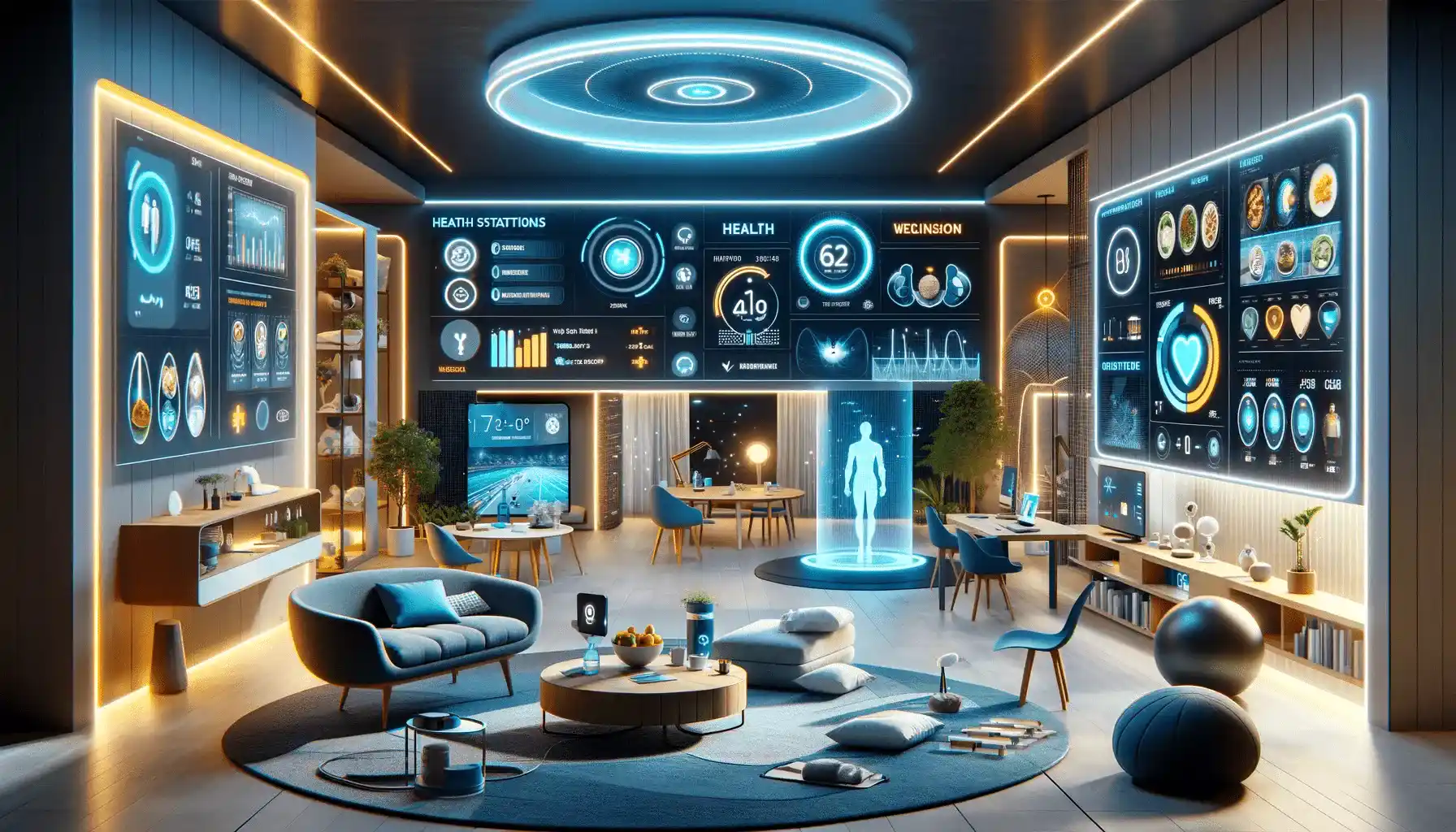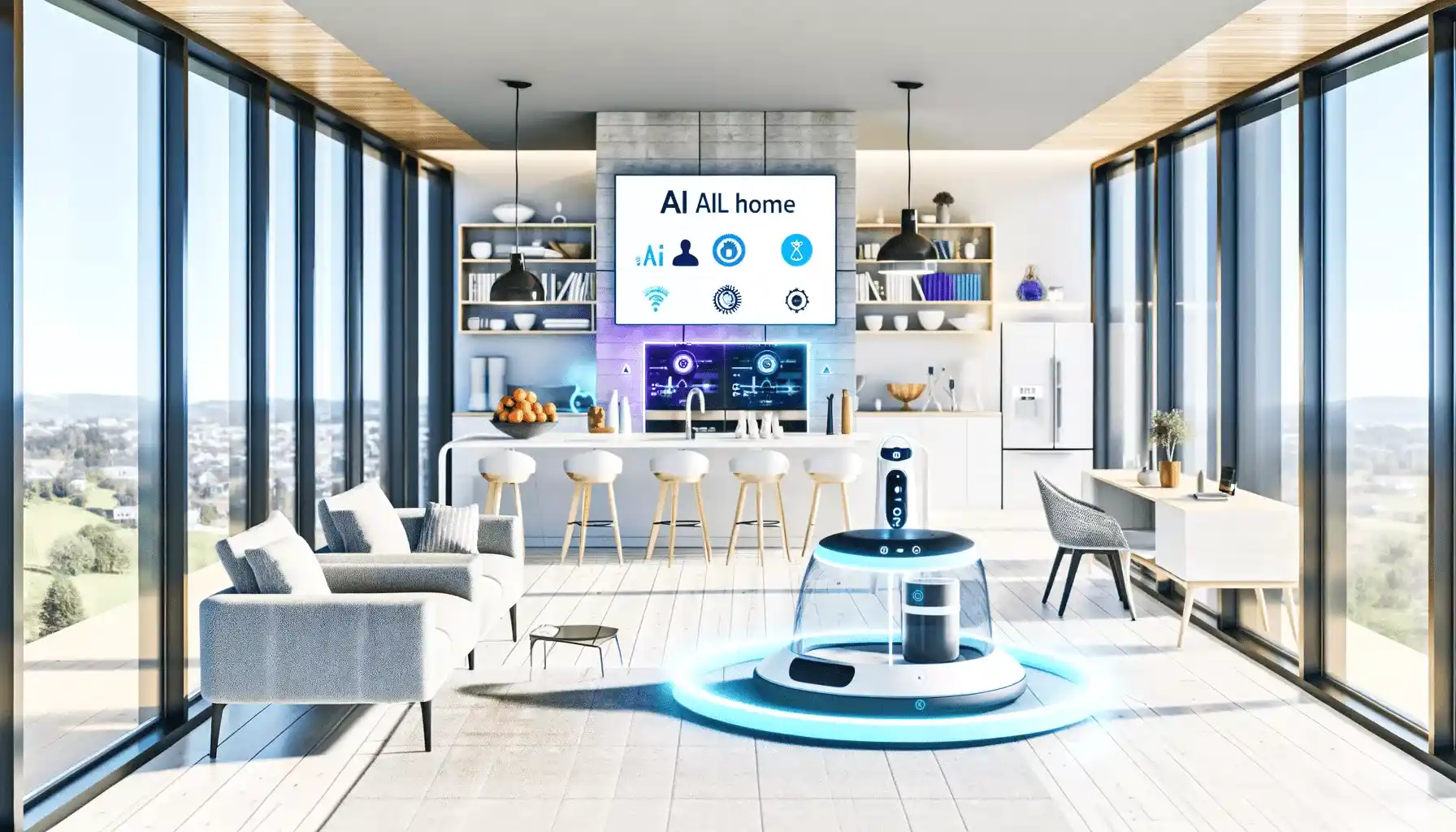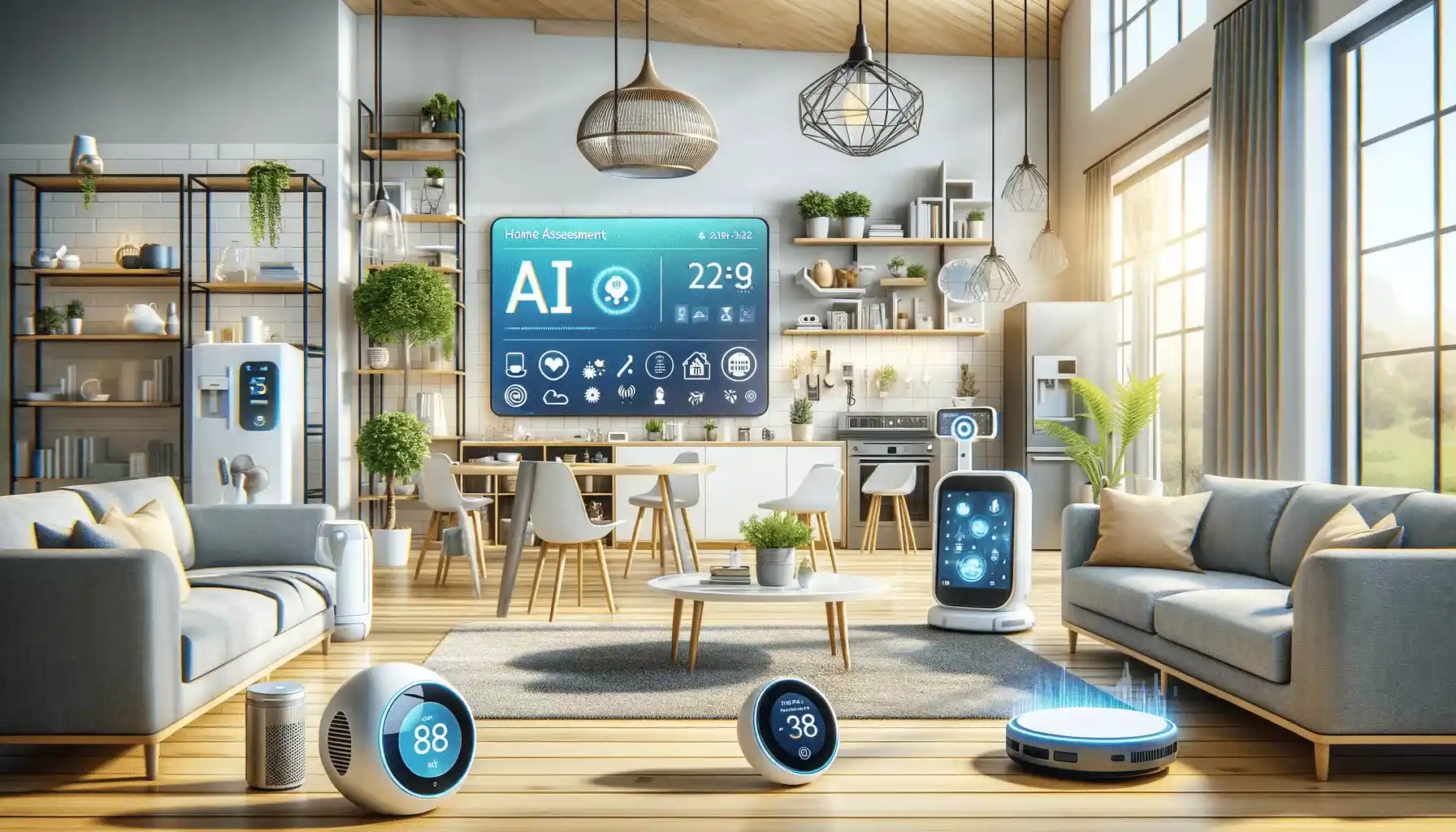Table of Contents
In today’s dynamic healthcare environment, technology remains at the forefront of reshaping patient care, with artificial intelligence (AI) emerging as a transformative force, particularly in-home assessments. AI-powered home Assessment represents a groundbreaking approach to monitoring and improving health outcomes. By leveraging sophisticated algorithms and data analysis, AI enhances health and well-being in several key ways.
Firstly, AI facilitates continuous monitoring of vital signs and health metrics, enabling early detection of potential issues. This proactive approach allows for timely intervention and preventive measures. Additionally, AI generates personalized insights based on individual health data, empowering users to make informed decisions tailored to their specific needs.

Furthermore, AI enables remote patient monitoring and management, enhancing accessibility and reducing healthcare burdens. Its ability to identify patterns and trends supports proactive health maintenance, while also improving patient engagement through personalized feedback and reminders.
In essence, AI-Powered Home Assessment revolutionizes healthcare delivery by providing efficient, personalized, and proactive solutions for optimizing health and well-being.
AI-Powered Home Assessment
1. Enhanced Monitoring and Early Detection
AI-Powered Home Assessment revolutionizes healthcare by enabling continuous monitoring of vital health parameters. Through sophisticated algorithms, AI meticulously analyzes data streams from various sources, including wearables and smart sensors. This comprehensive approach allows AI to detect even subtle changes in vital signs, movement patterns, and other health metrics.
By providing real-time insights into an individual’s well-being, AI empowers early detection of potential health issues. This proactive stance facilitates timely intervention and preventive measures, ultimately enhancing overall health outcomes. With AI-Powered Home Assessment, individuals can enjoy peace of mind knowing that their health is being meticulously monitored, and any deviations from normal patterns can be swiftly addressed, ensuring optimal health and well-being.
2. Personalized Health Insights
AI-Powered Home Assessment revolutionizes health management by leveraging cutting-edge technology to deliver personalized insights tailored to each individual’s unique needs. Through sophisticated data analysis and machine learning algorithms, AI deciphers intricate patterns and trends within health data, providing targeted recommendations for optimizing well-being.
This tailored approach extends to various aspects of health, including dietary adjustments, exercise routines, and medication management. By harnessing the power of AI, individuals gain access to a virtual health advisor that offers informed guidance based on their specific health profile.
Whether it’s adjusting nutritional intake to meet dietary requirements, tailoring exercise regimens to fitness goals, or optimizing medication schedules for maximum efficacy, AI empowers individuals to make proactive decisions that align with their health objectives. This personalized approach not only enhances health outcomes but also fosters a sense of empowerment and autonomy in managing one’s health journey through AI-Powered Home Assessment.
3. Remote Patient Monitoring and Management
AI-Powered Home Assessment revolutionizes healthcare for individuals with chronic conditions or those needing continuous medical oversight. Through the integration of wearable devices and smart sensors, AI facilitates remote patient monitoring in real time. This innovative approach empowers healthcare providers to track patients’ health parameters from afar, ensuring timely interventions when necessary.

By leveraging AI, healthcare professionals can remotely assess vital signs, movement patterns, and other relevant metrics, all from the comfort of the patient’s home. This not only enhances patient convenience but also alleviates the strain on healthcare systems by reducing unnecessary hospital visits and admissions.
Moreover, AI-driven remote monitoring fosters proactive healthcare management, allowing for early detection of potential complications and personalized interventions tailored to each patient’s unique needs. Ultimately, AI-Powered Home Assessment redefines patient care, offering a lifeline to those in need while optimizing resource allocation within the healthcare ecosystem.
4. Proactive Health Maintenance
AI-Powered Home Assessment represents a pivotal shift in healthcare, transitioning from reactive to proactive health maintenance. Through the continuous analysis of diverse data streams from wearables, IoT devices, and electronic health records, AI identifies potential health risks before they escalate into serious complications.
This proactive approach empowers individuals to take preemptive measures, mitigating health risks and fostering a culture of prevention and well-being. By leveraging AI, individuals gain insights into their health status in real time, enabling timely interventions and personalized health recommendations.
This not only enhances individual health outcomes but also reduces healthcare costs and burdens. AI-Powered Home Assessment epitomizes the convergence of technology and healthcare, revolutionizing how we monitor and manage our well-being from the comfort of our homes. As AI algorithms evolve and data integration becomes more seamless, the potential for proactive health maintenance through home assessment continues to expand, promising a future where prevention takes precedence over treatment.
5. Improved Patient Engagement and Adherence
In the realm of healthcare, patient engagement stands as a cornerstone for achieving favorable health outcomes. AI-powered home assessment takes patient engagement to new heights by offering tailored support and guidance. Through personalized feedback, timely reminders, and incentivized prompts, AI ensures that individuals remain actively involved in their care.
Whether it’s nudging them towards regular exercise routines, ensuring adherence to medication schedules, or encouraging the adoption of healthy lifestyle modifications, AI acts as a virtual health companion, seamlessly integrated into their daily lives. By leveraging sophisticated algorithms and real-time data analysis, AI-Powered Home Assessment provides individuals with actionable insights and recommendations, empowering them to make informed decisions about their health.

This dynamic interaction fosters a sense of ownership and responsibility, driving individuals to actively pursue their wellness goals. Ultimately, AI transforms the concept of patient engagement from passive recipients of care to proactive partners in their health journey.
Conclusion
In summary, AI-Powered Home Assessment signifies a paradigm shift in healthcare, leveraging artificial intelligence to redefine how we monitor and manage our well-being. Through this innovative approach, individuals gain access to a comprehensive suite of benefits, including heightened monitoring capabilities that detect subtle health changes, personalized insights tailored to their unique profiles, and remote patient management tools that transcend geographical barriers.
Moreover, AI facilitates proactive health maintenance by identifying potential risks early on and engaging individuals in preventive measures. By fostering improved patient engagement through personalized feedback and reminders, AI empowers individuals to take control of their health journey actively.
As technology continues to advance, the integration of AI into home assessment holds the promise of transforming healthcare delivery. With ongoing developments in machine learning and data analytics, AI stands poised to revolutionize how we approach health management, offering a holistic and proactive approach that empowers individuals to lead healthier, more fulfilling lives. The future of healthcare lies in the seamless integration of AI-Powered Home Assessment, ushering in an era where personalized, proactive care is the norm.